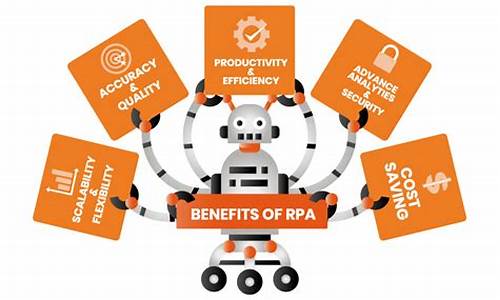Why RPA is a Game Changer for Human Resources
Robotic Process Automation (RPA) has emerged as a game-changer in various industries, with Human Resources (HR) being no exception. RPA technology automates repetitive and time-consuming tasks, enabling HR professionals to focus on more strategic activities. By leveraging RPA, HR departments can streamline operations, improve efficiency, and enhance the overall employee experience. In this article, we will explore how RPA is transforming HR processes and why it is a vital tool for modern organizations.
Streamlining Recruitment Processes
RPA can significantly reduce the time spent on administrative tasks during the recruitment process. By automating tasks such as resume screening, candidate communication, and interview scheduling, RPA frees up HR personnel to focus on more meaningful aspects of recruitment, such as interviewing candidates and assessing their fit within the company culture.
Enhancing Employee Onboarding
Employee onboarding is a critical phase in an employee’s journey within an organization. RPA can streamline onboarding processes by automating the creation of accounts, distributing documents, and managing benefits enrollment. This reduces errors and ensures that new hires have a smooth and welcoming transition into their roles.

Improving Payroll and Compliance
Payroll processing and compliance tasks are often prone to human error and can be time-consuming. RPA can help by automating payroll calculations, tax filings, and compliance reporting, ensuring accuracy and reducing the risk of errors. This not only saves time but also helps avoid costly fines and penalties.
Boosting Employee Engagement
RPA enables HR teams to focus on more engaging activities that promote employee satisfaction and productivity. By automating repetitive tasks, HR professionals can dedicate more time to employee engagement, career development, and retention strategies.
Reducing Operational Costs
RPA reduces the need for manual intervention in repetitive HR tasks, resulting in cost savings for organizations. Automation minimizes human error, cuts down on operational inefficiencies, and allows HR departments to operate with fewer resources, ultimately leading to reduced operational costs.
Conclusion
RPA is revolutionizing the HR landscape by automating routine tasks, reducing human error, and enabling HR professionals to focus on more strategic initiatives. With its potential to streamline recruitment, onboarding, payroll, and employee engagement, RPA is indeed a game-changer for Human Resources. Organizations that embrace this technology can expect to see improved efficiency, cost savings, and a better overall employee experience.

 企业平台
企业平台 发现评估
发现评估 自动化
自动化 行业解决方案
行业解决方案 业务解决方案
业务解决方案 合作伙伴
合作伙伴 生态联盟
生态联盟 咨询服务
咨询服务 培训服务
培训服务 交流社区
交流社区 客户成功
客户成功 产品文档
产品文档
 公司介绍
公司介绍 新闻列表
新闻列表 联系我们
联系我们 加入我们
加入我们

